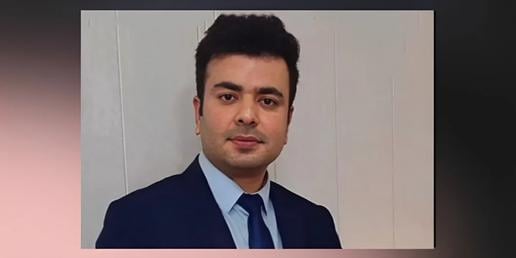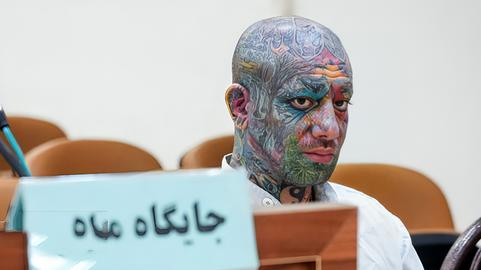The first hint that something might be wrong came at the beginning of last week, when Sunday Mba was late in joining the Nigeria squad in London before their friendly against Scotland. Rumors–of which there are always an abundance when Nigerian football is involved–suggested the coach, Stephen Keshi, who tends to take a hard line about such matters, was furious.
Mba didn’t make the starting line-up for the Scotland game, but that was very much an experimental side, as Keshi sought to whittle his provisional squad into a final 23. It seemed certain that Mba would make the final 23 so of course he wouldn’t play against Scotland.
Mba has been was one of Keshi’s great success stories, a player who was a controversial call-up to the squad for the Cup of Nations in January 2013, one of four domestic-based players Keshi insisted on calling up despite widespread criticism from those who argued that players in the Nigerian league couldn’t possibly be good enough for the international stage. Mba proved Keshi absolutely right, scoring the winners against Ivory Coast in the quarter-final and against Burkina Faso in the final. More than that, he had the elegance and the creativity to knit together a vibrant and fluid front four.
Until last week, there were plenty of reasons to believe that Nigeria would go into the World Cup with Emmanuel Emenike as the lone striker, with Victor Moses and Ahmed Musa on the flanks and Mba sitting behind Emenike almost as an old-fashioned playmaker.
Then the bombshell dropped. The rumors of Keshi’s anger had been true: when he named his final 23, Mba was not in it. "His lateness to camp contributed but outside that he did not show the hunger, the fight, we expected for him," Keshi said. "We have only two and half weeks to prepare for the World Cup and he was not giving us what we wanted. He was very relaxed. And it was unlike him.”
In a sense, Keshi is being consistent. He has had no qualms in the past about dropping players he thought weren’t fully committed–even Mikel John Obi, the unrivalled star of the side. The policy of short-term pain for long-term gain has worked: what stood out about Nigeria in South Africa last year as opposed to previous squads was how tight-knit they were, how focused, how committed. Keshi’s strictness had generated a ferocious sense of unity and team spirit.
Perhaps he is right to stick to that policy, to show that everybody has to pull together, that no exceptions will be made: plenty of Nigeria squads in the past have disintegrated in tournaments because of a lack of togetherness. But it does leave Nigeria short of real creativity and guile.
Nigeria drew 2-2 against Scotland, scoring late in each half to level twice, bit that was a side so far removed from a probable starting line-up that it would be misleading to read too much into that. Still, two things stood out. One was the form of the 21-year-old left-sided attacking midfielder Michel Babatunde, who plays his club football in Ukraine for Volyn Lutsk. He was included in the Confederations Cup squad and confirmed his place in the World Cup 23 with his performance at Craven Cottage. The other was Keshi’s post-match praise for Shola Ameobi, which hinted he sees him having a role to play in Brazil.
The match against Greece in Pennsylvania on June 3 was of far greater significance, as Keshi selected something far closer to a putative first team. Vincent Enyeama, after a fine season with Lille, returned in goal, and the back four was the one that had performed so well at the Cup of Nations last year: Efe Ambrose at right-back, always keen to get forward; the pairing of Kenneth Omeruo of Middlesbrough and Godfrey Oboabona, now at Rizespor, but the other of Keshi’s four domestic players to really impress in South Africa; and, most probably, Juwon Ishaniwa, at left-back.
At the back of midfield were Ogenyi Onazi ad Mikel. Onazi, of Lazio, is the more defensive, sitting in front of the back four and offering cover as Mikel, given a far freer role than he has enjoyed at Chelsea over the past few seasons, looks to push forward.
And then there is that front four: three familiar names and Mba’s replacement. Emenike led the line, making his familiar drifts to the right, creating space for Ahmed Musa to swoop in from that flank, while Victor Moses operated on the left. Mba’s place was taken by Peter Odemwingie, whose recall to the side was something of a surprise. He had fallen out with Keshi after being substituted in Keshi’s first game in charge, and there has been little in his recent performance for West Bromwich Albion to explain why the coach would seek a reconciliation.
Besides which, he is not the same sort of player as Mba. Odemwingie, at 32, is not quite as quick as he was, but still, his strength is his pace and finishing rather than creative play. He can play wide, but a central playmaking role is new to him and, inevitably, the shape against Greece often looked more like 4-4-2 than 4-2-3-1. It was no great surprise when Odemwingie was withdrawn after 56 minutes to be replaced by Babatunde. The game ended goalless–admittedly against a Greece side that has made 0-0 draws their preferred mode–but that seemed to sum up an Mba-less Nigeria: defensively sound but lacking the guile to break solid opponents down.
Who will occupy that central creative role remains unclear. Odemwingie may be given another chance, or Musa, Moses or Babatunde could be used centrally. Or there’s even the possibility of deploying Ameobi as a central striker with Emenike a little deeper. Perhaps Keshi will be vindicated again–he has a habit of getting things right–but the sense at the moment is that his hard-line approach to discipline has created a tactical problem that hadn’t previously existed.








































comments